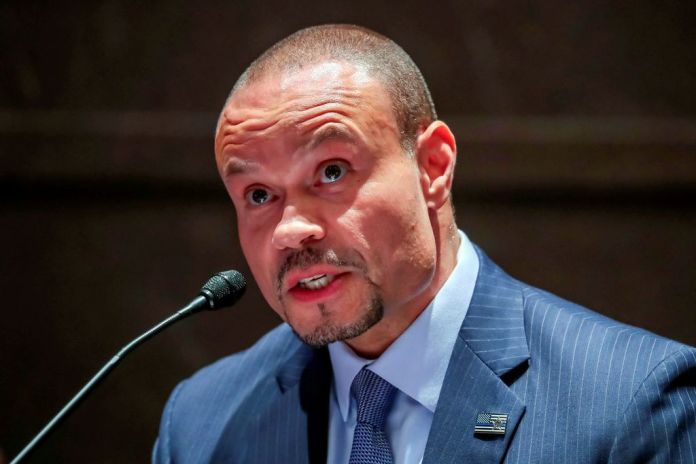Kentucky Signs Up With Growing Motion to Blacklist ESG Banks
Kentucky has actually signed up with a growing list of conservative states that have actually started to boycott banks they charge are victimizing the nonrenewable fuel source market.
In compliance with a Kentucky law passed in March, State Treasurer Allison Ball the other day launched a list of banks that “are engaged in energy company boycotts.” This list consisted of Wall Street giants BlackRock, Citibank, JPMorgan Chase, BNP Paribas, HSBC, and 6 other smaller sized banks.
“Energy is important in Kentucky,” Ball informed The Date Times. “It’s important to the nation, but in Kentucky in particular, about 7.8 percent of our labor force is from the energy sector. We have a lot at stake just because it’s a part of our economy.”
Kentucky’s action to safeguard its nonrenewable fuel source market follows comparable procedures by West Virginia and Texas in 2015. Kentucky is the seventh-largest state in coal production and 71 percent of its electrical power depends upon coal-fired plants. Kentucky is likewise accountable for 1.6 percent of America’s oil refining capability and 2 percent of its gas storage. Over half of Kentucky homes depend on electrical power to warm their houses.
“From an ideological perspective, those industries have been have been targeted for the last few years by the ESG movement,” Ball stated. “So our state legislature in Kentucky passed last year a bill that said, ‘If you are boycotting the fossil fuel industry, then we don’t want to do business with you as a state.’ We don’t want to use taxpayer dollars to support an ideology that’s actually targeting and harming our signature industries.”
According to the Kentucky law, referred to as SB205, the rely on the boycott list have 60 days to contest the charge and 90 days to “cease engaging in energy company boycotts in order to avoid becoming subject to divestment by state governmental entities.”
Derek Kreifels, CEO of the State Financial Officers Structure, admired Treasurer Ball’s action, specifying: “She and other state financial officers across the country are leading the movement to ensure that money earned by hardworking American families is used in accordance with their values, not weaponized against them.”
Kreifels informed The Date Times that he anticipates more states will follow the lead of Kentucky, Texas, and West Virginia in 2023.
“ESG is front and center in this next legislative session,” he stated. Concerns of issue might vary from fossil fuels to guns, to plains states like Nebraska, Kansas and Iowa working to safeguard their farming markets that feed the country.
“We see the harm that ESG is doing, and we applaud any state official who’s willing to stand up to this scam that is being pushed across America from the White House to Wall Street,” he stated.
A number of the banks on Kentucky’s boycott list have actually signed promises to lower carbon emissions throughout their financing and financial investment portfolios as members of worldwide clubs like Environment Action 100+, the Glasgow Financial Alliance for Net Absolutely No (GFANZ), the Net Absolutely No Banking Alliance (NZBA), and the Net No Property Managers effort (NZAM). While companies who have actually signed up with these groups firmly insist that they stay active financiers in nonrenewable fuel source business and do not victimize them, financial investment company Lead is among the couple of monetary companies to withdraw its subscription in these clubs.
“It’s remarkable to me that any of these institutions say that they’re not engaging in boycotts, because they have statements that say that they are, and some of them very explicitly,” Ball stated. “Blackrock has been very explicit in wanting to cease business with coal companies.”
At a December hearing prior to the Texas state senate, agents from State Street and BlackRock testified that they just sign up with these clubs to talk about environment concerns with other members, instead of to require a program on business whose shares they own. Regardless of the promise of members of Environment Action 100+ and NZAM to “reach net-zero emissions by 2050 or sooner across all assets under management,” numerous banks and property supervisors insist they are doing no such thing in practice.
BlackRock just recently received a three-year exemption from the Federal Energy Regulatory Commission (FERC) to purchase up to 20 percent of U.S. utilities. Lead is presently looking for comparable approval.
As the biggest property supervisors on the planet, BlackRock, Lead, and State Street normally do not divest from nonrenewable fuel source business, however rather purchase and hold their shares and deal with management relating to the modifications they wish to see. Larry Fink, CEO of BlackRock, the world’s biggest property supervisor, concerns a yearly letter to CEOs that information what he thinks about the most crucial subjects for them to concentrate on in the coming year, which frequently consists of “sustainability” concerns.
“We engage with companies in our portfolios; we do not divest,” State Street Global Advisors’ Chief Financial Investment Officer Lori Heinel mentioned at the Texas hearing. However Heinel included: “We do not discriminate against companies in any sector, including energy companies … That means we do not tell those energy companies to shift their strategy or to drill more wells.”
In a May letter to the Texas comptroller, JPMorgan Chase composed: “We provide financial services to many companies that engage in the exploration, production, utilization, transportation, sale or manufacturing of fossil fuel-based energy and intend to do so in the future. Our credit exposure to Oil & Gas as an industry was $42.6 billion as of December 31, 2021.”
Having actually vowed obligation to climate-activist causes, nevertheless, these companies are now captured in between red states that fear their markets and tasks are being targeted, and blue states that insist they honor their promises to lower making use of nonrenewable fuel sources.
New York City City Comptroller Brad Lander, who manages the city’s pension funds, lambasted BlackRock, specifying that in spite of its climate-action promises, “BlackRock now abdicates responsibility for driving net zero alignment in its own portfolio by saying that it does not ask companies to set specific emissions targets, and that its participation in NZAMi does not mean BlackRock is setting or meeting any net zero targets.”
In a scathing letter last September, in which Lander threatened to withdraw New york city City pension funds from BlackRock, he charged that “the fundamental contradiction between BlackRock’s statements and actions is alarming. BlackRock cannot simultaneously declare that climate risk is a systemic financial risk and argue that BlackRock has no role in mitigating the risks that climate change poses to its investments by supporting decarbonization in the real economy.”
BlackRock, State Street, and Lead, referred to as the “Big Three” property supervisors, are jointly the biggest investors in 90 percent of S&P 500 business. Together, they handle roughly $20 trillion in financial investment and retirement properties.
" Conservative News Daily does not always share or support the views and opinions expressed here; they are just those of the writer."




